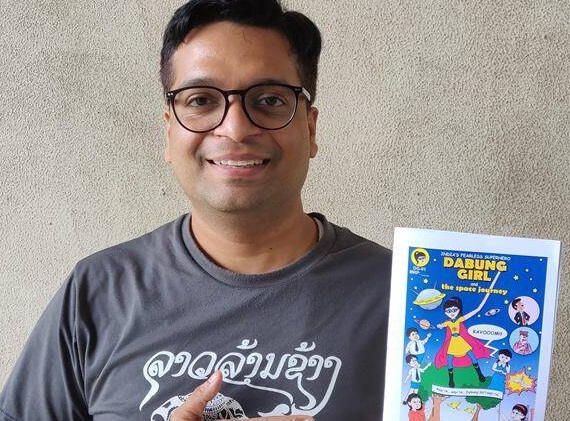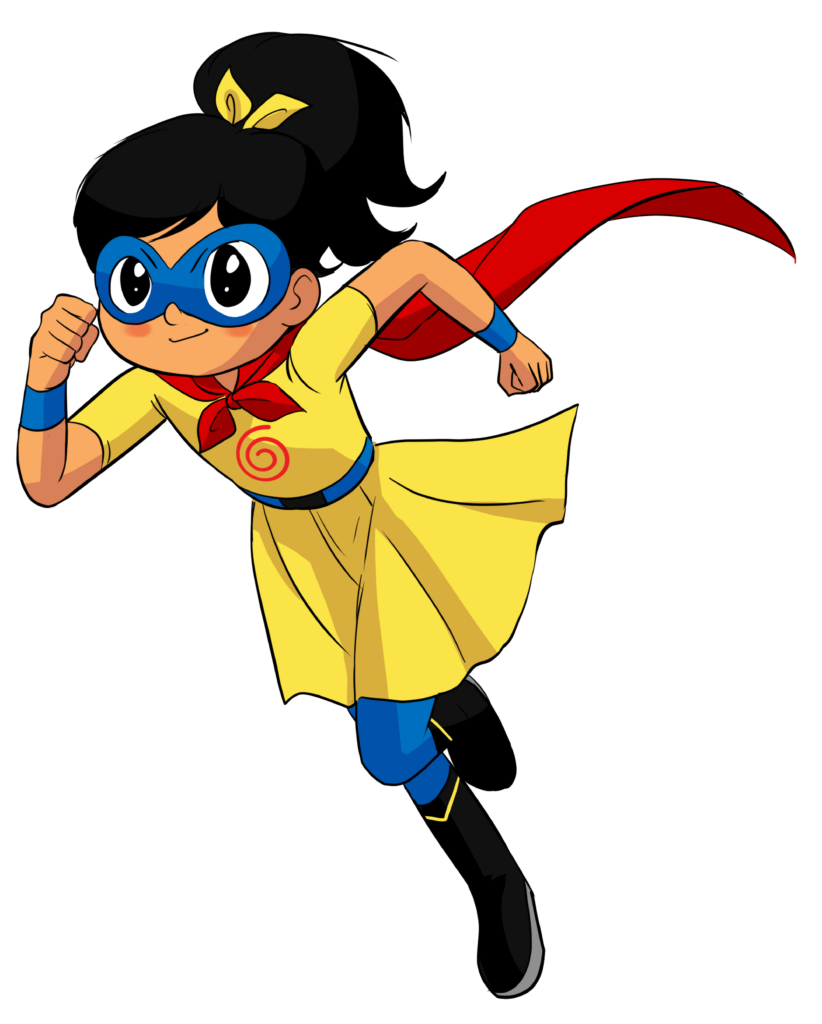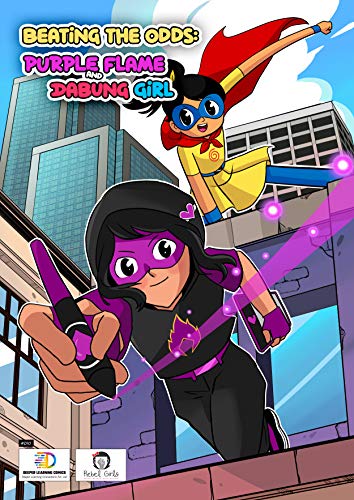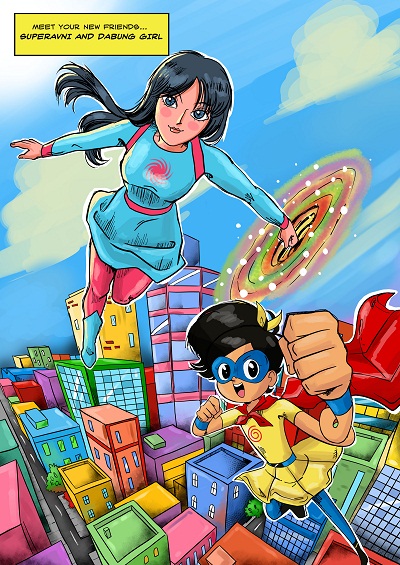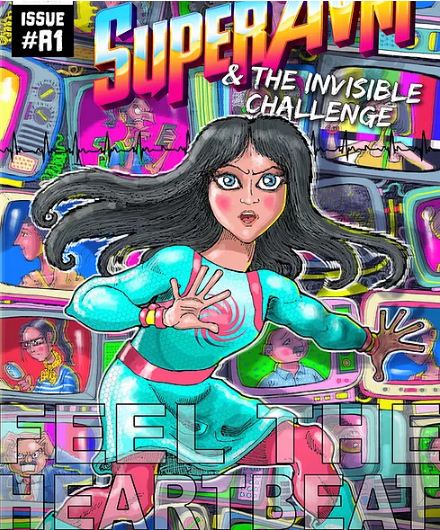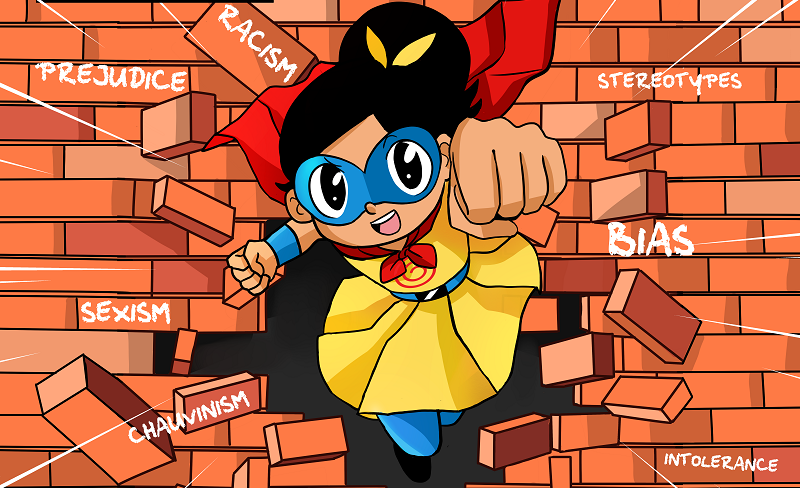
Across India, gender inequality results in unequal opportunities, and while it impacts the lives of both genders, girls face extensive limitations at every stage of life. To address gender equality and cyberbullying issues, a life skills educator and author Saurabh Agarwal came out with the much-needed comic books Dabung Girl and SuperAvni that narrates the stories of female superheroes who highlight and fight with social barriers and taboos of society.
AnimationXpress had the pleasure of speaking with the Dabung Girl and SuperAvni’s creator Saurabh Agarwal. He is a man with a lot of passion and creativity who works for the welfare of kids and child development and strongly believes that every girl deserves to reach her full potential.
Here are some excerpts
Despite being a Harvard and IIT alumni, you have been keenly interested in creating comics to bring positive mindsets in children. What triggered you to enter the world of comics?
Being a Life Skill educator, we used to conduct workshops for school children. Communication, leadership, critical thinking, and gender sensitivity were the key components of those workshops. Every week we had a brainstorming session in our workshops. We used to have fictional characters Tara and Aman who communicate with the children through letters. One week Tara said in a letter that she wants to be an astronaut. During the discussion, a few boys mocked by saying that girls can’t even ride a bicycle properly, they will crash the rocket on the moon. Many girls refuted back and had an interesting conversation.
For a young child to think like that is not so good. How the child gets an impression like that is only because of the ecosystem around us. So this incident made us think about how we challenge the stereotypes that are being developed in children regarding gender. So that’s how we started the Dabung Girl comic book series and our first story is based on breaking stereotypes.
What was the idea behind selecting a Female Superhero as a lead character?
Most of the superheroes that Indian children love to watch are male superheroes. Young girls have no female superheroes to relate with. Wonder Woman, Batgirl were not famous in Indian settings. We then realised that we need a female superhero like Dabung Girl who represents a strong female lead character to inspire young girls to be fearless and aim for success, realising their own internal superhero. We have 12 comics today, our stories narrate about child trafficking, child abuse, child marriage, and all other social issues.
What led to the creation of other superheroes like ‘SuperAvni’ and ‘Purple Flame’ ?
We created two other superheroes from the response that we received from Dabung Girl: SuperAvni and Purple Flame. SuperAvni’s story features cyberbullying and talks about how she handles and overcomes it. Interestingly her second comic is released with U.S. vice president Kamala Harris where Dabung girl and SuperAvni go to the U.S. and work closely with Harris to prevent an attack on America. We wanted to add more role models to our story to create more impact among children. Purple Flame is a superhero who overcomes the obstacles of dyslexia. Our only aim is to build inclusion in society.
Who are your core team members and what are their contributions to the comic books?
Lot of people are supporting and joining us. I say it is a kind of movement as people who are passionate about social issues are also working with us. We also have some people from the industry like global storyteller Abhishek Singh. The illustrations are done by Charbak Dipta , Mona Singh, Abhishree, and Priyank. We are about 20 team members who are actively working for the development of comic books.
Since your comic books talk about social issues, what kind of research work went into it? Have you tied up with any NGO as well?
We worked with a lot of organizations and NGOs like Kailash Satyarthi Children’s Foundation, Delhi Commission, Seeds of Peace and there are few others we are discussing with. We always get insights from domain expertise about the theme we are working on. Being a consultant, while writing stories we have to do a lot of research, fact checks, literature reviews, and background research. Our lenses always focus on what our Indian children from middle-income families are being exposed to and where we can do our value addition.
Dabung Girl is actively involved in the COVID awareness campaign and recently an animated music video featuring Dabung Girl was released which was also shared by the government on My Gov channel. We also created a Dabung Girl short animation film to spread awareness among the public. We are now mainly concentrating on high-quality stories because a strong story is a campaign itself.
Where are the books available?
We launched Dabung Girl in December 2019, and since March 2020 the pandemic has hit us so we haven’t had a chance to establish a chain of distribution. Being a social initiative we are available on Amazon, Flipkart, and Kindle app. We are distributing both hard copies and e-books free of cost with school management, principals, and teachers to share with children. We worked with Delhi Commission to create awareness about child protection and law, so they distributed the copies to all the government schools in Delhi. We are also working with NGOs where they distribute it to their target groups. Our partners are also supporting us extensively on distribution and circulation.
What were the challenges you faced while coming up with these books? How is the ROI?
During tough times like COVID, the entire industry has been hit badly; book circulation distribution was at its worst. We are lucky enough that people came forward to support us and we had successful crowdfunding campaigns. Some organizations and individuals buy the books in bulk and distribute them to the children. Our sale continued during the pandemic crisis thanks to the support that we gathered from partners and the public.
Are you also planning to publish in other languages?
Dabung Girl was recently launched in Afghanistan in partnership with a local organization and two of our comics have been translated into the Farsi language. We are very grateful for the love and appreciation we received from the readers. Most of our comic books are available in English and Hindi. We are working on translating into more regional languages.
Are you going to follow the social issue theme for all your comics or do you have plans to include other genres too?
The whole purpose of Dabung Girl, SuperAvni, and Purple Flame is to build inspiration for young children. It is important to create inspirational and informative stories that make them challenge the status quo, think about gender sensitivity, inclusion, and so on. We believe that gender equality cannot wait! This will be the basic concept which we will follow in all our stories.
When are your next comic books releasing? Any highlights?
Many interesting stories are coming up to create awareness on Down syndrome and menstruation. The story on menstruation will be a complete digest that focuses on taboos and myths in the society regarding menstruation. Hopefully we will be launching it very soon.
Are there any plans of transforming the comic books into animated series?
Before the pandemic, Dabung Girl was in talks with many animation production studios but as the pandemic hit, things and priorities were changed. So hopefully we will launch the animated version once things settle down.
As your comics are credited with many appreciation and awards, as a creator how do you feel about that?
It is very humbling to see our work being recognized and appreciated. More than the awards, we feel gratitude when the young readers reflect on those stories. We have young readers who send backstories like Cinderella going out at night where she gets into trouble while Dabang Girl comes and saves her, leading to Cinderella and Dabung Girl becoming best friends. After reading our comics many young readers started to highlight and question the issues around them. As a creator, we are proud of such moments and it is like we are adding values to society.
What message do you wish to spread among the kids through these books and the titular characters?
The message I want to deliver is ‘gender equality cannot wait!’ Girls should not settle down or accept things without understanding especially when it comes to gender inequality. From childhood, boys should be made to respect and consider girls as powerful as them.

